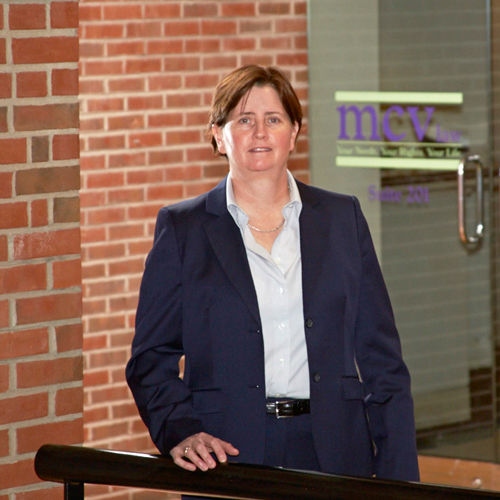
MCV Law is excited to announce the recent opening of a law office in Watertown, NY. Our Watertown office is located in the CANI Building, 19472 US-11 Watertown, NY 13601.

MCV Law is excited to announce the recent opening of a law office in Watertown, NY. Our Watertown office is located in the CANI Building, 19472 US-11 Watertown, NY 13601.
I have spoken with several people lately who were denied Social Security Disability benefits as they were not insured and did not know what this means. Typically, you will hear the term “credits.”
In order to be eligible for Social Security Disability benefits, you must be insured under the Social Security Program. When you work for most employers, you pay premiums into the Social Security System through FICA payroll taxes. After you have paid enough into the system for your age, you become eligible to receive Social Security Disability benefits should you become disabled.
To determine whether you are fully insured, the Social Security Administration factors in how much you have worked in terms of “Quarters of Coverage.” You can earn up to four quarters of coverage each year regardless of how much you earn. For 2016, you need to earn $1,260 in earnings to get one credit. Each year the amount of earnings needed to secure a Social Security credit changes and generally more earnings are needed to secure a credit
In order to be fully insured for Social Security Disability purposes, you must have earned at least one quarter of coverage per year for each year since you turned 21 years old. A minimum of six quarters of coverage is needed to be fully insured at any age.
To be eligible for Social Security Disability benefits, you must also be currently insured. You are currently insured if you have at least 20 credits in the last 40 quarters (5 of the last 10 years). There are some exceptions to this rule for younger workers.
Contact us for a free initial consultation with our Social Security Disability lawyers near Syracuse, NY.
I was recently asked about the rules regarding work for people on Social Security Disability. If you are on SSD, you can earn up to $810, gross, per month, and not affect your benefits. You can make more than $810 per month, for a period of 9 total months in a 5 year window, without affecting your benefits. The 9 months need not be in a row, just 9 months in the 5 year period. This is called a “Trial Work Period.”
Once you have used up the 9 month trial work period, SSA will look to your earnings to see if you have been doing “substantial gainful activity” or SGA. For 2016, SGA means gross earnings over $1,130 or more per month. If you make $1,130 or more, your benefits will stop.
The Social Security Board of Trustees just released a very important annual report regarding the short and long term future of Social Security.
Read the Social Security Administration’s blog post about the report here.

Social Security issued a new rule in March that steers Judges from specifically assessing your “credibility” per se. SSA is supposed to look at your statements and how they relate to what your doctors or other providers say about your symptoms and complaints, and whether your symptoms are consistent with the objective medical evidence in your records.
It is important not to exaggerate your symptoms. Discuss your symptoms with your doctors. If they ask how you are doing, describe for them how you are doing, don’t just say “I am doing ok.” Be honest about your symptoms and limitations, and be consistent with what you tell your doctors at each visit, and what you report to Social Security. Don’t report how you are doing or what your activity level is on your best day, as that may not be an accurate assessment of how you usually feel.
It is also important to have ongoing treatment by doctors. If you don’t treat, it may be perceived that your condition must not be that bad. You also need to comply with your doctors recommendations for treatment or medications.
Sometimes it is important to be evaluated by a specialist. With many conditions, treatment with your family doctor will not be sufficient. A perfect example is Fibromyalgia, you must be diagnosed by a Rheumatologist.
For a free initial consultation, contact us.
On April 16, 2016, the U.S. Department of Education announced a new process to proactively identify and assist some disabled federal student loan borrowers who may be eligible for Total and Permanent (TPD) loan discharge. Eligible borrowers will receive a letter explaining they are eligible for loan forgiveness and steps they need to take to receive a discharge.
The Treasury Offset Program (TOP), allows borrowers’ defaulted debts owed to federal and state governments, including student loan debt, to be paid down by offsetting other federal benefits that the debtor would receive, including Social Security Disability payments.
The Higher Education Act allows for loan forgiveness for borrowers who are totally and permanently disabled. To be found permanently and totally disabled, borrowers must be designated by Social Security as “Medical Improvement not Expected” (MINE). The MINE designation means that Social Security does not believe your condition will improve, although they will set your case for review in seven years.
The Department of Education is working with the Social Security administration to identify those individuals designated as MINE so they are eligible for a streamlined process where they sign and return a completed application. Other people with student loan debt maybe eligible for TPD discharges, but they need to submit additional proof to request the discharge and the process is not streamlined.
While this is good news, under the current law, the amount of loans discharged are counted as income for the tax year in which the discharge is granted, and SSDI benefits can be garnished to pau for taxes on the amount of loans discharged.
A new bill has been proposed in the Senate, S. 2800, which would make discharged student loan debt no longer taxed as income. Learn more about the proposal here.
If you have questions about your Social Security benefits as they relate to student loan debt, contact us to schedule a free initial consultation.

Social Security is warning people who have applied for Social Security benefits, or who are receiving Social Security benefits, about a text “phishing” scheme that has recently started. SSA has received reports from Disability Representatives indicating that some of their clients are receiving suspicious text messages, asking them to call a telephone number for information about their Social Security disability benefits, or about their disability claim, or about their disability hearing. This appears to be happening in a number of different cities and states.
According to these reports, individuals posing as Government officials have sent texts to several Social Security disability applicants and beneficiaries in an attempt to elicit a response—possibly to obtain their personal and financial information. These texts are being sent to many phone numbers, hoping someone will respond and give out personal information. Some of the texts may use language like:
“Disability Alert: Please call xxx-xxx-xxxx regarding your recent disability benefits application.”
“Disability Alert: Please call xxx-xxx-xxxx about your disability claim or your hearing may be delayed.”
“We are working on your disability case and we would like to speak to you. Please call xxx-xxx-xxxx.”
If someone asks you to give them any personal information, do not give out any information.
Social Security will never send you an unsolicited text message about your application for benefits. Social Security will never send you an unsolicited text message about your hearing asking for personal information. Social Security will never send you an unsolicited text message to get personal information about benefits you are already getting. Social Security already has your personal information!!
You should never provide your Social Security number, birth date, bank account numbers, or other personal information to someone who calls, emails or texts you unless you know the person asking for that information. Social Security representatives may call to follow up on a benefit application, or might call to remind you about a hearing date and time—but they will not send unsolicited text messages—and they usually will not ask for personal identifiers or financial information. There are many different versions of this type of phishing scheme which could lead to identity theft or Social Security benefit theft.
IF YOU RECEIVE A TEXT MESSAGE, E-MAIL, OR PHONE CALL FROM ANYONE CLAIMING TO BE FROM SOCIAL SECURITY OR ANY OTHER GOVERNMENT AGENCY REQUESTING PERSONAL INFORMATION, PLEASE CALL OUR OFFICE IMMEDIATELY AT 315-471-1664.

Social Security defines disability as the inability to engage in substantial gainful activity by reason of any medically determinable physical and/or mental impairment which can has lasted or can be expected to last for at least 12 months or result in death.
A medically determinable impairment is an impairment resulting from anatomical, physiological or psychological abnormalities which can be measured by medically acceptable clinical and laboratory diagnostic techniques. . The medical evidence must show signs,
The Social Security Regulations provide a five step sequential evaluation process for determining disability.
Yes. Social security has what’s called a listing of impairments. These listings include a number of physical and mental impairments, that will automatically qualify an individual for Social Security Disability benefits (SSDI) or Supplemental Security benefits (SSI), if the individual’s condition meet or equals the specific criteria for a listing.
You have the burden of proving you are disabled. You will need medical records from acceptable medical sources who have treated you. The preference is for evidence from physicians who have treated you. Social Security also looks for any diagnostic testing such as: MRIs, CT scans, Nerve Conduction studies, etc. it is also important to have Opinion evidence from your doctors as to the severity of your symptoms as well as the limitations that you have from your condition that limits your ability to work.
The application process can take about 4 to 6 months, so you should apply as soon as you are told that your condition will prevent you from working for at least 12 months or is terminal.
There are several ways to apply for benefits:

Social Security Disability is a federal benefits program, managed by the Social Security Administration that provides monthly benefits for disabled workers and certain members of their family. To be eligible for Social Security benefits, you must be insured, meaning you have to have earned a certain number of work credits.
You must have a severe impairment or combination of impairments that meets Social Security’s definition of disability. Your condition must be severe in that it interferes with your ability to do basic work activity and must have lasted or be expected to last at least 12 months.
The program also provides medical insurance in the form of Medicare benefits after an individual has been on Social Security Disability for the period of 24 months.
Social Security Disability and Supplemental Security Income or SSI, are two disability programs administered by the Social Security Administration.
The primary difference is that the Social Security Disability program provides benefits based upon an individual’s work history, whereas the SSI is a need-based disability program that provides monthly benefits to people over 65 who have little income, are blind or disabled.
SSI defines disability the same way as Social Security Disability, but it again applies to people with limited income and assets. To meet SSI income requirements, you must have less than $2000 in assets ($3000 if a couple) and no or very limited income.
Most people who qualify for SSI will also receive Medicaid from the state in which they live. There is no waiting period for SSI benefits.
You have to be insured for the benefits, meaning you’ve had to work for enough quarters and pay the Social Security tax. You must show that you have a severe impairment or a combination of impairments that has prevented you from working for a period of at least 12 months or is likely to keep you from working for a period of at least 12 months or end in your death.
The impairment is such that it renders you disabled for any jobs that you’ve held in the past 15 years, and that you are incapable of doing any other work in a meaningful way because of your impairment.
1. They don’t file an appeal or don’t timely file an appeal. The process is long and confusing and people get discouraged when they get a denial. People that have good claims get denied, expect to get denied, but don’t place to much credit upon the denial, file your appeal. Sometimes people are told to file a new claim. This is a mistake. Your second application is not likely to fare any better than your first application. Do yourself a favor and hire an attorney who handles Social Security cases to help you with your appeal. You only have 60 days from the date of denial to file the appeal.
2. They don’t seek treatment for their conditions. There are a lot of reasons people do not go for medical treatment. Examples include: the cost; my doctor told me there is nothing more he/she can do for my condition; the treatment doesn’t help or makes my symptoms worse. This is a mistake. This process is about your credibility to some extent. A judge may not believe your condition is as bad as you say if you are not getting medical treatment. The people who get benefits are those who continue to treat, even if the treatment is not very effective, and can point to a medical record showing they are following their doctors’ treatment recommendations and what has worked or hasn’t worked for you.
3. They don’t have a good doctor’s opinion on their restrictions. I talk to people every day who want to focus solely on their diagnosis. The burden of proving you are disabled is on you. You need medical evidence from a physician in the form of a diagnosis, treatment records, diagnostic test results, hospital records and a statement from your doctor describing your functional limitations.

Kimberly Slimbaugh
Partner
Email: kslimbaugh@mcvlaw.com
Phone: 315-471-1664
Kimberly Slimbaugh has been practicing law since 1992 and is a current partner at Meggesto, Crossett & Valerino, LLP. In addition to the New York State Bar, she was admitted to the Massachusetts State Bar in 1992. She is a member of the National Association of Social Security Representatives and regularly attends its national conferences.